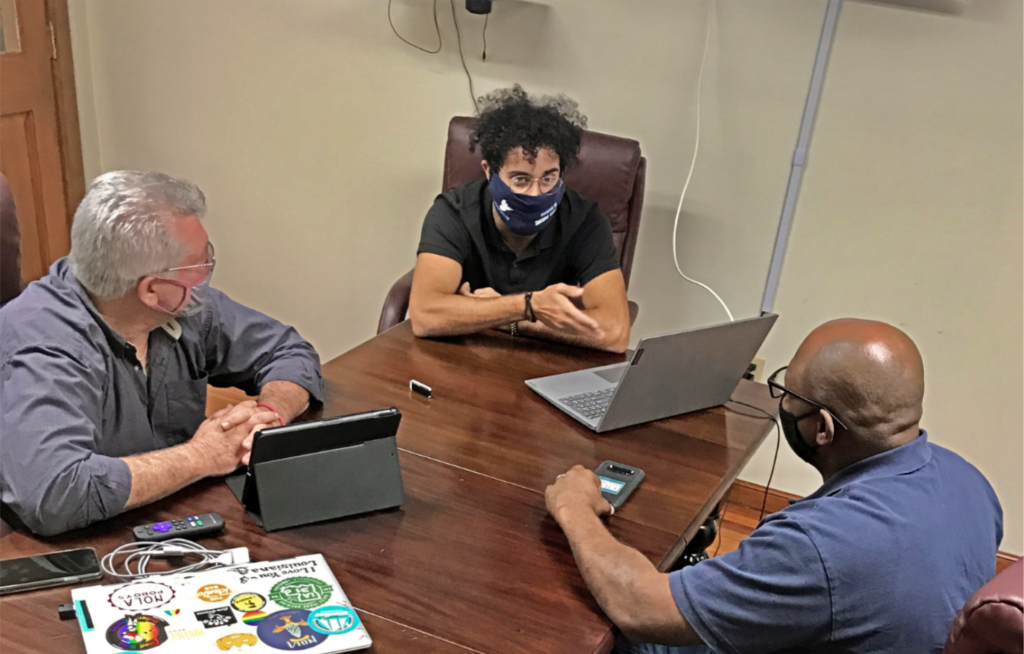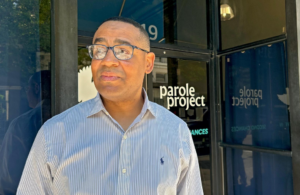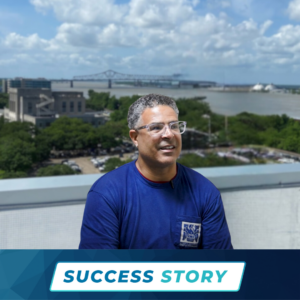FROM BANKERS, SMALL BUSINESS OWNERS, CEOs AND ENGINEERS, to attorneys, professors, members of the faith community, college students, and former law enforcement officers, Parole Project volunteers are a diverse group with a broad spectrum of experience and specialized knowledge. They give their time and talents for personal reasons, but they all have one thing in common: a shared belief in the organization’s mission and a desire to help our clients reach their full potential.
Volunteers are the backbone of our organization. Some give their time after hours or in between work and school to assist clients needing additional support. LSU students Shelby Terrell, Meghan Gavin, Lauryn Fry, and Peyton Jeffcoat tutor clients one-on-one to help them develop their smart phone skills and navigate the Internet, while volunteers with the campus organization, Tiger Prison Project, conduct workshops on resume writing, job application assistance, and basic computer literacy. Others donate their professional services, like film producer Jason Furrate who spent countless hours producing the “Believe in Second Chances” video central to our 2020 Virtual Fundraiser, and Rafael Jacobs-Perez who is developing a database to improve case management and information retrieval.
The core of our reintegration curriculum is supported by volunteer instructors who teach clients critical reentry skills. Kimberly Chapman is the financial literacy coordinator for Neighbors Federal Credit Union. She introduces clients to the basics of financial management, emphasizing topics essential for economic independence like growing savings, effective budget techniques, and establishing credit. “I volunteer because formerly incarcerated people are dealing with so many barriers and they are at a huge disadvantage,” she said, adding that the time she takes to meet with clients, answer their questions, and address their financial concerns is a way to “even the playing field.”
A couple of years ago Wilfred Barry, CEO of a Baton Rouge-based civil engineering and construction firm who devoted hundreds of volunteer hours each year to the local community, decided it was time to begin cutting back. Then he learned about Parole Project and became intrigued. “It just seemed like such a cool organization,” he said. “I was looking at the numbers and I could see this organization has the power to actually change lives.” Instead, Barry took on two new commitments, joining the board of directors and volunteering as an instructor to teach job seeking and interview skills. He believes that when clients have realistic expectations they are more resilient and less likely to feel defeated by the inevitable disappointments and rejections of a job search. “I usually tell them ‘Don’t worry about it. It may take 20-30 interviews, but that’s normal for today. Eventually you’re going to end up where you need to be, and then God smiles.”
Other Intensive Reintegration phase classes are: Engaging with Law Enforcement, Workplace Etiquette, Civil Engagement, Goal Setting, Stress Management, Personal Wellness, Reentry Peer Support, and Consumer Protection. They are all designed and taught by our volunteer corps, men and women who give of their time and of themselves because they believe in our mission and in the potential of our clients. Parole Project is grateful for their contributions to improve the lives of our clients, our communities, the enhancement of public safety and their belief in Second Chances.


Photo caption: Parole Project volunteer Rafael Jacobs-Perez (center) holds a training session for staff members Steve Amort and Louis Gibson on the database he built to track client hearings, improve case management, and retrieve statistical information as the number of clients served continues to grow




